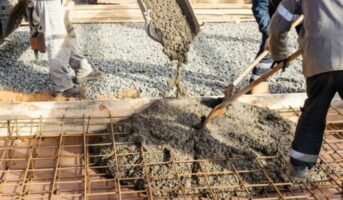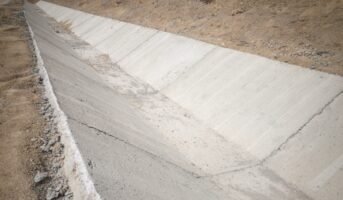Paver blocks are small blocks used in pavements and sometimes, in walls and pillars too. Available in variety of colours, sizes and patterns, these interlocking blocks are laid to form a pavement. As they seamlessly join each other, they are strong with less chances of breakage. Paver blocks are one of the most sought-after exterior pavement applications as they look good and are easy to walk on.
Factors that affect paver block prices
Paver blocks are available in many shapes and sizes like rectangle, square, zig zag, X-shaped, interlocking and plain ones. You should choose the type, according to the place and load they will bear. The type, material, demand, location and usability are some of the factors that affect paver block prices.
Also read all about AAC block price and sizes
Paver Block Price: Quality vs. Cost
Like all things, paver block price also varies based on quality and cost. For instance, while a paver block with thickness of 30 mm of a common shape may be around Rs 35 per sq ft, the one with a thickness of 40 mm may be Rs 140 per sq ft. So, better the quality, expensive is the paver block.
Different types of paver blocks
Regular paver blocks: These are the common ones which are seen installed in public places like parking, foot paths, railway stations etc.
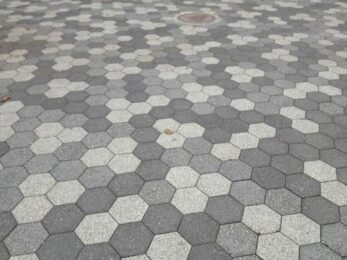
Source: Pinterest
Clay paver blocks: These are environment-friendly and mostly used in walls or pillars. They are also known as bricks. Available in natural shades, its colour does not fade. Also, one can customise the shape while choosing the clay paving blocks.
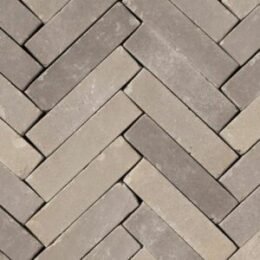
Source: Pinterest
Concrete paver blocks: Available in many colours, concrete blocks come in both, smooth and rough surfaces. They are mostly used in places that support heavy load. They are the preferred choice when it comes to constructing a pavement. Note that the colour can fade from concrete blocks.
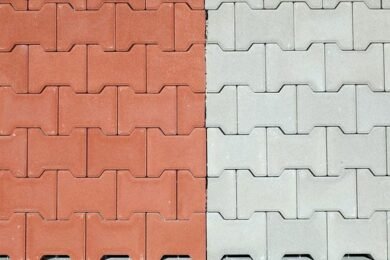
Source: Pinterest
Plastic paver blocks: These are made using recycled waste plastics, making them environment friendly.
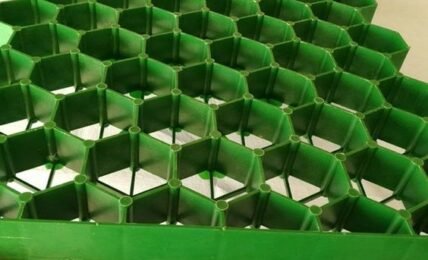
Source: Pinterest
Rubber paver blocks: Made of recycled rubber, these are generally used in areas like playground flouring, swimming pool deck etc.
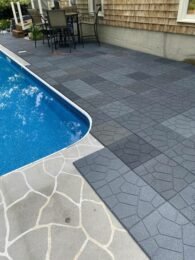
Source: Pinterest
Permeable paver blocks: These are heavily used in garden and backyards as they allow the water between them to drain.
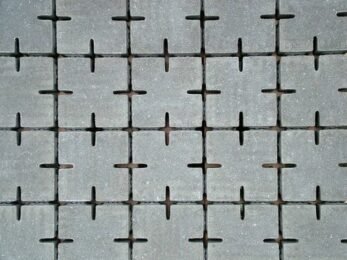
Source: Pinterest
Stone paver blocks: Made of compact stone and sand, stone paver blocks are actually made by cutting naturally stones.
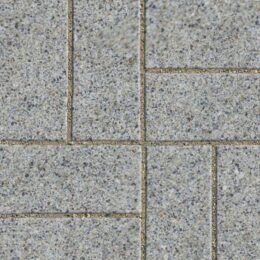
Source: Pinterest
See also: Everything you need to know about Mivan construction technology
Benefits of investing in high-quality paver blocks
Installation: Installation of paver blocks is tedious and time-consuming. According to industry experts, installing paver blocks takes more time but they can be used immediately once done.
Cost: Paver blocks or paver stones are more expensive than other options in markets. To install paver stones, you need building materials like gravel, bedding sand and equipment like compactors, excavators, etc., which are also expensive. The initial cost is high, if you have zeroed-in on using paver blocks for your patio. However, you may save money in the long run, as it requires low maintenance.
Weather-friendly: Due to weather conditions, the ground expands and contracts. So, if concrete is used for patios, there are chances of it developing cracks. As paver blocks are small and many such pieces interlock with each other, they are weather-friendly. They can contract and expand, thereby, mitigating risks of developing cracks.
Easy maintenance: Care and maintenance of paver blocks is easy. They can be easily cleaned and mopped. If there is a need to repair paver blocks, then, unlike a chunk of concrete where you may have to break and replace the entire slab, you can just replace the paver stones.
However, it is important to ensure proper upkeep of the paver blocks and regularly refill the gravel and bedding sand once they get washed off over time. Due to the absence of sand, there is a possibility of weed growing or garbage getting stuck between the paver blocks. So, you need to maintain the paver blocks periodically.
Also read: Know the pros and cons of tile flooring
Where to find the best deals on paver blocks?
You can find the best deals on paver blocks with paver block manufactures available in the market as well the online space. Contractors and architects can help in referring the best paver blocks that have to be used and the place from where you can source it.
See also know about: Aac Block
FAQs
Are paver blocks slip and skid resistant?
Yes, paver blocks are slip and skid resistant. Hence, it is preferred in areas with high footfalls.
What are the different types of paver block?
While there are many varieties available in the market, the most prominent ones are clay and concrete paver blocks.

With 16+ years of experience in various sectors, of which more than ten years in real estate, Anuradha Ramamirtham excels in tracking property trends and simplifying housing-related topics such as Rera, housing lottery, etc. Her diverse background includes roles at Times Property, Tech Target India, Indiantelevision.com and ITNation. Anuradha holds a PG Diploma degree in Journalism from KC College and has done BSc (IT) from SIES. In her leisure time, she enjoys singing and travelling.
Email: [email protected]



